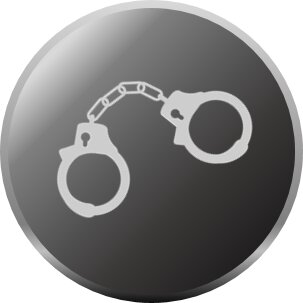Best Lawyers in Bnei Brak
Share your needs with us, get contacted by law firms.
Free. Takes 2 min.
List of the best lawyers in Bnei Brak, Israel
About hiring a lawyer in Bnei Brak, Israel
Hiring a lawyer in Bnei Brak follows the same general process used across Israel, with some local practical considerations. First you identify lawyers who handle the type of case you have. You then arrange an initial consultation to discuss facts, likely outcomes, expected costs, and timing. If you choose to proceed you should receive a written engagement letter or fee agreement that defines the scope of work, billing method, and who will handle the file. Many lawyers request a retainer - an upfront payment applied to future bills.
Because Bnei Brak is a predominantly Haredi city, many local lawyers are familiar with community norms, rabbinical-court matters, and language needs such as Yiddish or Hebrew. Scheduling, communication style, and expectations about business hours can reflect local religious practices - for example, most offices will not operate on Shabbat. If your matter involves religious law, family law, or community institutions, look for a lawyer with specific experience in those areas.
Why You May Need a Lawyer
People in Bnei Brak seek legal help for many common reasons. A lawyer can protect your rights, explain complex law, meet procedural deadlines, and represent you in court or negotiations. Typical situations include:
- Family law matters, such as divorce, child custody, and spousal support - often involving both civil and rabbinical processes.
- Inheritance and wills, including disputes among heirs and coordinating civil estate matters with religious procedures.
- Real estate transactions and disputes, including purchasing, leasing, boundary disputes, and construction issues.
- Debt, collections, and bankruptcy proceedings.
- Employment disputes, labor claims, and workplace-related issues.
- Criminal charges and traffic offenses, where early legal advice can affect bail, plea offers, and outcomes.
- Business and commercial law, including contract drafting, business disputes, and company formation.
- Administrative and municipal issues, such as planning, licensing, or social-services disputes with government bodies.
- Consumer protection claims, personal-injury claims, and insurance disputes.
Local Laws Overview
Israel has a unified legal system. Local practice in Bnei Brak reflects national statutes, administrative rules, and the decisions of courts that handle the city. Key points to know:
- Court structure - Civil and criminal matters are heard in magistrate courts, district courts, and the Supreme Court as an appellate body. Many routine civil and criminal cases are handled at the magistrate level; larger or more complex matters go to the district court. Check the Courts Administration to confirm which court handles your case.
- Family law - Marriage and divorce for Jewish citizens are governed by rabbinical courts for religious aspects. Civil courts handle related civil matters such as property distribution or enforcement of agreements. If your issue involves Jewish divorce, consult a lawyer experienced with both civil and rabbinical proceedings.
- Administrative law - Claims against government agencies follow specific procedures and deadlines. Administrative petitions often require rapid action and specialized knowledge.
- Consumer, labor and tenant protections - Israeli law provides protections for employees, tenants, and consumers; those rights can be enforced in civil courts or through statutory complaint mechanisms.
- Language and documentation - Hebrew is the language of the courts and government. Foreign-language documents usually require certified translations. If you are more comfortable in another language, ask for a lawyer who can communicate in that language.
- Deadlines and statute of limitations - Time limits for filing claims vary by type of claim. Missing a deadline can end your right to sue, so consult quickly to preserve your claim.
Frequently Asked Questions
How do I find a qualified lawyer in Bnei Brak?
Start with referrals from people you trust, community recommendations, and local directories. Confirm the lawyer is licensed by checking the Israel Bar Association registry. Ask about experience in the specific area of law, prior outcomes, fees, and who on the team will handle your matter.
How much will a lawyer cost in Bnei Brak?
Costs vary by practice area, complexity, and lawyer seniority. Common billing methods are hourly rates, fixed fees for defined work, and hybrid arrangements that may include a success fee. Expect to pay an initial retainer. Always request a written fee agreement that explains billing, disbursements, and when you will receive itemized bills.
Do I need a local lawyer or can I hire someone from another city or country?
You can hire any licensed Israeli lawyer, but a local lawyer in Bnei Brak has advantages - familiarity with municipal procedures, local courts, community norms, and contacts. If your case involves international or out-of-area issues, a lawyer with the relevant specialization is more important than physical location.
Can a lawyer handle both civil court and rabbinical court matters?
Many lawyers handle both types of proceedings, but rabbinical-court matters require specialized knowledge of religious law and procedures. If your case involves divorce, ketubah or other religious issues, choose an attorney experienced in rabbinical practice to ensure both civil and religious dimensions are addressed.
What should I bring to my first meeting with a lawyer?
Bring identification, any letters or notices, contracts, court papers, police reports, medical records if relevant, and a chronological summary of events. Provide contact information for other parties and any witnesses. A clear summary helps the lawyer assess your matter more quickly and accurately.
How do I verify a lawyer is in good standing?
Check the Israel Bar Association for registration and discipline information. Ask the lawyer for their registration number and professional references. Confirming credentials and asking about experience is a normal and expected step.
What if I cannot afford a private lawyer?
If you meet qualifying income and asset thresholds you may be eligible for legal aid from the Ministry of Justice. Some lawyers and firms also offer pro bono services or reduced-fee representation for certain matters. Community legal clinics and non-profit organizations may provide additional help.
How long will my case take?
Duration depends on the type of case, court backlog, whether parties negotiate a settlement, and procedural steps such as evidence collection or expert opinions. Some matters resolve in weeks; others take months or years. Your lawyer should provide a realistic timeline and update you as the case progresses.
What is attorney-client privilege in Israel?
Communications between you and your lawyer are generally confidential and protected by privilege, which encourages full and frank disclosure. There are narrow exceptions, for example where evidence of future criminal planning is disclosed. Discuss confidentiality with your lawyer at the outset.
Can a lawyer in Bnei Brak handle international or immigration issues?
Yes - some local lawyers specialize in immigration, foreign-national matters, or cross-border disputes. For immigration and nationality matters, consult a lawyer with specific experience in those fields. For representation abroad, local lawyers often work with foreign counsel or coordinate actions across jurisdictions.
Additional Resources
Official and local resources you may find helpful:
- Israel Bar Association - to verify lawyer registration and for professional standards: - Ministry of Justice - general information about legal aid, public legal services, and administrative guidance: - Bnei Brak Municipality - for local administrative matters, permits, and municipal contacts: {"@context":"https://schema.org","@type":"FAQPage","mainEntity":[{"@type":"Question","name":"How do I find a qualified lawyer in Bnei Brak?","acceptedAnswer":{"@type":"Answer","text":"Start with referrals from people you trust, community recommendations, and local directories. Confirm the lawyer is licensed by checking the Israel Bar Association registry. Ask about experience in the specific area of law, prior outcomes, fees, and who on the team will handle your matter."}},{"@type":"Question","name":"How much will a lawyer cost in Bnei Brak?","acceptedAnswer":{"@type":"Answer","text":"Costs vary by practice area, complexity, and lawyer seniority. Common billing methods are hourly rates, fixed fees for defined work, and hybrid arrangements that may include a success fee. Expect to pay an initial retainer. Always request a written fee agreement that explains billing, disbursements, and when you will receive itemized bills."}},{"@type":"Question","name":"Do I need a local lawyer or can I hire someone from another city or country?","acceptedAnswer":{"@type":"Answer","text":"You can hire any licensed Israeli lawyer, but a local lawyer in Bnei Brak has advantages - familiarity with municipal procedures, local courts, community norms, and contacts. If your case involves international or out-of-area issues, a lawyer with the relevant specialization is more important than physical location."}},{"@type":"Question","name":"Can a lawyer handle both civil court and rabbinical court matters?","acceptedAnswer":{"@type":"Answer","text":"Many lawyers handle both types of proceedings, but rabbinical-court matters require specialized knowledge of religious law and procedures. If your case involves divorce, ketubah or other religious issues, choose an attorney experienced in rabbinical practice to ensure both civil and religious dimensions are addressed."}},{"@type":"Question","name":"What should I bring to my first meeting with a lawyer?","acceptedAnswer":{"@type":"Answer","text":"Bring identification, any letters or notices, contracts, court papers, police reports, medical records if relevant, and a chronological summary of events. Provide contact information for other parties and any witnesses. A clear summary helps the lawyer assess your matter more quickly and accurately."}},{"@type":"Question","name":"How do I verify a lawyer is in good standing?","acceptedAnswer":{"@type":"Answer","text":"Check the Israel Bar Association for registration and discipline information. Ask the lawyer for their registration number and professional references. Confirming credentials and asking about experience is a normal and expected step."}},{"@type":"Question","name":"What if I cannot afford a private lawyer?","acceptedAnswer":{"@type":"Answer","text":"If you meet qualifying income and asset thresholds you may be eligible for legal aid from the Ministry of Justice. Some lawyers and firms also offer pro bono services or reduced-fee representation for certain matters. Community legal clinics and non-profit organizations may provide additional help."}},{"@type":"Question","name":"How long will my case take?","acceptedAnswer":{"@type":"Answer","text":"Duration depends on the type of case, court backlog, whether parties negotiate a settlement, and procedural steps such as evidence collection or expert opinions. Some matters resolve in weeks; others take months or years. Your lawyer should provide a realistic timeline and update you as the case progresses."}},{"@type":"Question","name":"What is attorney-client privilege in Israel?","acceptedAnswer":{"@type":"Answer","text":"Communications between you and your lawyer are generally confidential and protected by privilege, which encourages full and frank disclosure. There are narrow exceptions, for example where evidence of future criminal planning is disclosed. Discuss confidentiality with your lawyer at the outset."}},{"@type":"Question","name":"Can a lawyer in Bnei Brak handle international or immigration issues?","acceptedAnswer":{"@type":"Answer","text":"Yes - some local lawyers specialize in immigration, foreign-national matters, or cross-border disputes. For immigration and nationality matters, consult a lawyer with specific experience in those fields. For representation abroad, local lawyers often work with foreign counsel or coordinate actions across jurisdictions."}}]}
Lawzana helps you find the best lawyers and law firms in Bnei Brak through a curated and pre-screened list of qualified legal professionals. Our platform offers rankings and detailed profiles of attorneys and law firms, allowing you to compare based on practice areas, experience, and client feedback. Each profile includes a description of the firm's areas of practice, client reviews, team members and partners, year of establishment, spoken languages, office locations, contact information, social media presence, and any published articles or resources. Most firms on our platform speak English and are experienced in both local and international legal matters. Get a quote from top-rated law firms in Bnei Brak, Israel — quickly, securely, and without unnecessary hassle. Disclaimer: The information provided on this page is for general informational purposes only and does not constitute legal advice. While we strive to ensure the accuracy and relevance of the content, legal information may change over time, and interpretations of the law can vary. You should always consult with a qualified legal professional for advice specific to your situation. We disclaim all liability for actions taken or not taken based on the content of this page. If you believe any information is incorrect or outdated, please contact us, and we will review and update it where appropriate.
Refine your search by selecting a practice area.

































